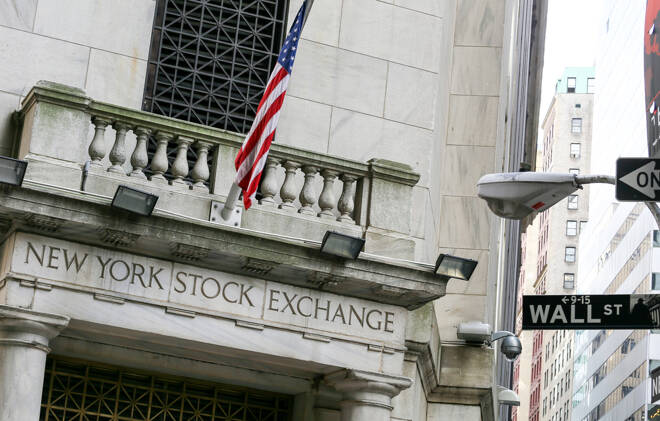Advertisement
Advertisement
Used-Car Retailer CarMax Shares Plunge Over 8% as COVID-19 Hurts Store Sales
By:
The United States’ largest used-car retailer CarMax reported better-than-expected earnings in the third quarter of the fiscal year 2021 but the Fortune 500 company’s same-store sales declined as a surge in COVID-19 cases constrained demand and resulted in tightened occupancy restrictions, sending its shares down over 8% on Tuesday.
The United States’ largest used-car retailer CarMax reported better-than-expected earnings in the third quarter of the fiscal year 2021 but the Fortune 500 company’s same-store sales declined as a surge in COVID-19 cases constrained demand and resulted in tightened occupancy restrictions, sending its shares down over 8% on Tuesday.
The used-car retailer’s same-store used unit sales dipped 0.8% in the third quarter ended November 30, worse than the market expectations of a 3.5% growth, up from 11% jump in the same quarter a year ago.
However, CarMax’s 3Q EPS increased 36.5% year-over-year to $1.42 per share, better than the Wall Street consensus estimates of $1.14. The company’s revenues rose 8.2% year-over-year to $5.2 billion, topping analysts’ estimate of about $5 billion.
“We think the market on December 22 did not like the negative comparable store decline, but we don’t think it’s time to panic. Management said the metric was growing at about a mid-single-digit rate at the start of the quarter but slowed due to coronavirus restrictions and uncertainty about the election,” said David Whiston, sector strategist at Morningstar.
“We are raising our fair value estimate to $93 from $89 on the time value of money since our last update, higher fiscal 2021 and 2022 revenue, and more CarMax Auto Finance income as a percent of revenue for fiscal 2021 and 2022 based on how reported results are trending. We expect good CAF results to continue given the low-interest-rate environment. In the quarter, CAF income grew 55%, and we calculate 19% growth excluding the impact of a large decline in the loan loss provision,” Whiston added.
CarMax shares closed 8.09% lower at $92.33 on Tuesday. However, the stock is up over 5% so far this year.
CarMax Stock Price Forecast
Nine analysts who offered stock ratings for CarMax in the last three months forecast the average price in 12 months at $120.33 with a high forecast of $180.00 and a low forecast of $73.00. The average price target represents a 30.33% increase from the last price of $92.33. From those nine equity analysts, seven rated “Buy”, one rated “Hold” and one rated “Sell”, according to Tipranks.
Morgan Stanley gave a base target price of $165 with a high of $250 under a bull scenario and $63 under the worst-case scenario. The firm currently has an “Overweight” rating on the used-car retailer’s stock.
“While F&I drove the beat, investors focus on negative YoY comps and a guide for higher advertising costs and lower pricing ‘tests.’ All part of the sausage-making of true omnichannel execution, but it demands greater investor patience to see it through,” said Adam Jonas, equity analyst at Morgan Stanley
“Our 8% price target reduction reflects the changes to our forecasts that run through our 2030 DCF model. Our long-term assumptions are largely unchanged at an 11-year revenue CAGR through 2030 of 7.6%, 7.7% exit EBITDA margin assumption, 7.4% WACC and implied exit terminal EV/EBITDA multiple of 12.2x (terminal growth of 3.6%).”
Several other analysts have also recently commented on the stock. JP Morgan lowered the stock price forecast to $110 from $115. Wedbush raised the target price to $120 from $90. RBC increased price objective to $111 from $102. Oppenheimer restated a “buy” rating and issued a $130. Royal Bank of Canada boosted their target price to $110 from $100.
Analyst Comments
“Based on historical & current data, we expect to see strength in used car sales as we move forward, particularly given the shortage of new car inventory, manufacturers pulling back on incentives, and potential tailwinds from de-urbanization, mass transit, ride-sharing, and travel. We expect Carmax to successfully execute their Omnichannel strategy, providing both online and physical dealer options to the consumer,” Morgan Stanley’s Jonas added.
“Carmax has consistently generated profitability and has one of the strong balance sheets amongst the dealers. Long term, we estimate strong growth in same-store sales along new store openings, allowing Carmax to achieve operating leverage, with upside from the omnichannel rollout.”
Check out FX Empire’s earnings calendar
About the Author
Vivek Kumarauthor
Vivek has over five years of experience in working for the financial market as a strategist and economist.
Advertisement
